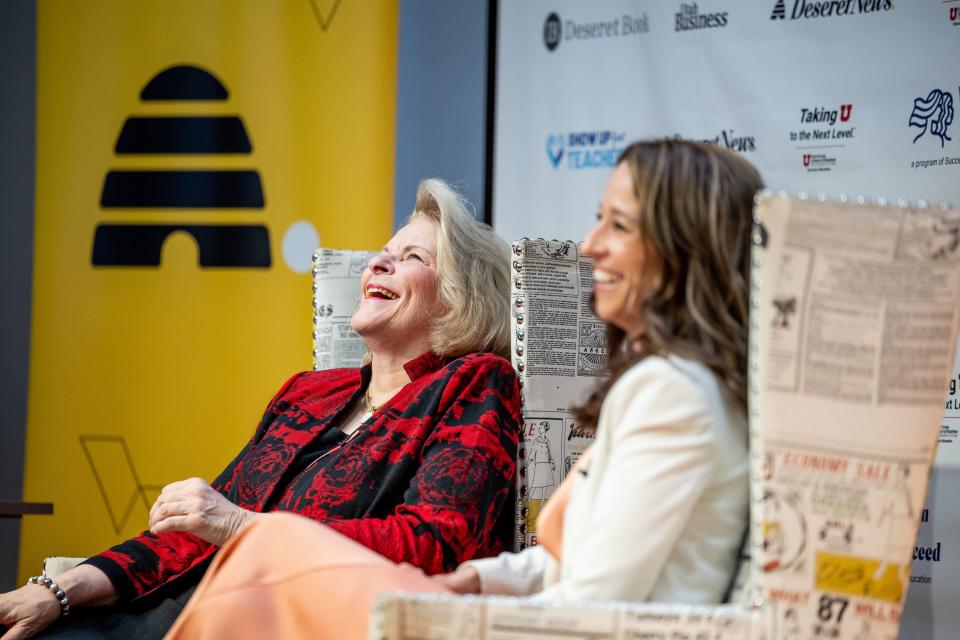Abby Cox and Sheri Dew on mentors, what’s scary and showing up
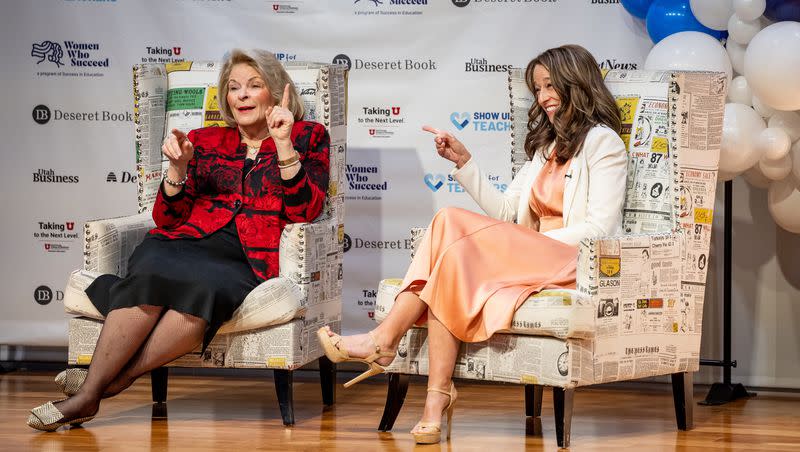
- Oops!Something went wrong.Please try again later.
They were both born in rural communities and grew up on farms, learning hard work from an early age. They have each struggled to overcome shyness and a lack of self-confidence. And they also grew into very influential women who hope to inspire and empower girls to lead and love and change the world for the better.
Utah first lady Abby Cox and Sheri Dew, the executive vice president and chief content officer for Deseret Management Corporation, spent 90 minutes Thursday in a candid conversation that ranged from laugh-out-loud funny to poignant as part of a “Voices” event at the David Eccles School of Business on the University of Utah campus.
“Voices,” presented by Deseret News and Utah Business, bills itself as “conversations with some of today’s most inspirational and influential voices.” Debbie Worthen, a KSL news anchor, moderated. Previous events have featured former NFL and Utah football player Alex Smith, and NBA stars Joe Ingles and Mike Conley.
While neither Dew nor Cox was wildly enthusiastic about farm work as a child, both look back fondly. Dew said she’s grateful for the freedom she had to learn to do things and lessons that later proved helpful, like “sticking with jobs that you don’t necessarily want to do.”
Both learned a lot about hard work from the example of their parents and grandparents. One of her first — and best — role models was her mother, Cox told the audience of close to 180 people. Her uncle once told her he never met anyone who worked as hard as Cox’s mother. “My parents were insanely hard-working,” she said.
The discussion was at times vulnerable. Dew admitted, for instance, that one of her pivotal moments came from something she didn’t do. She’d been asked — and had agreed — to talk to an all-girls organization at her high school about her church. She was the only member of The Church of Jesus Christ of Latter-day Saints at the time in her Kansas school. But being shy and lacking self-confidence, she stayed home that day, feigning illness. The guilt that brought bothered her a lot.
Dew said that “flipped a switch.” The life lesson is that “if you believe in something and care about it, you need to speak up and figure out how to do it.”
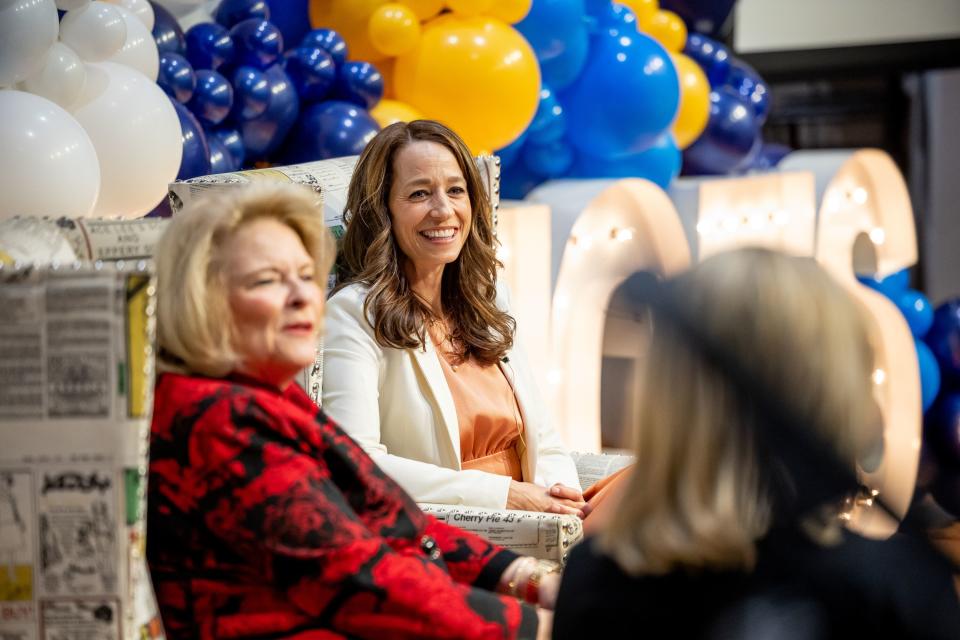
One of Cox’s pivotal moments was very different from Dew’s. The fifth of 10 children in a very sports-oriented family, she’d played basketball and football and other sports since she was small. Her identity was wrapped up in being an athlete when at age 17 she had an identity crisis. The sports she’d love weren’t fun anymore, so she stopped doing them, finding new activities instead.
“I realized who I am is not the same as what I like to do,” she said, noting her identity is about being a good human and the spiritual aspects of her life, among other things. “Just because it’s something you do doesn’t mean it’s who you are,” she said.
Figuring out who she is came up again as Cox was looking for the passions that would drive her efforts as Utah’s first lady. She said she’d been a stay-at-home mom and a volunteer for more than two decades. But her husband’s office and her position provide the opportunity to make goals and promote programs and causes that resonate.
Some of her passions, she said, include education in general, but also creating opportunities for children who have intellectual disabilities and special needs. So her work has included a partnership with Special Olympics and being a voice, too, for teachers and for children who are in foster care, among other “care communities” that matter to her.
Dew spoke candidly of ways life doesn’t turn out how you expected. She told the audience she’d always assumed she’d be a wife and mother. But she didn’t marry and her children have been the “hilarious” nieces and nephews her siblings have been generous enough to share with her — and now their children, too. Asked what makes her smile, she talked about them.
What’s scary, she noted, is the questions she now has about being single as she ages. She’s not sure what that will look like. “It’s hard,” she admitted, noting she wonders what will happen when she can’t take care of herself.
What scares Cox is “watching adults tear each other down — and knowing our kids are seeing that.” She laments that even watching a presidential debate is “so awful” she thinks children should be shielded.
Cox several times mentioned the importance of volunteering, calling it the “antidote to a lot of mental health issues with kids.” She noted that voluntarism “has to be intentional.”
Related
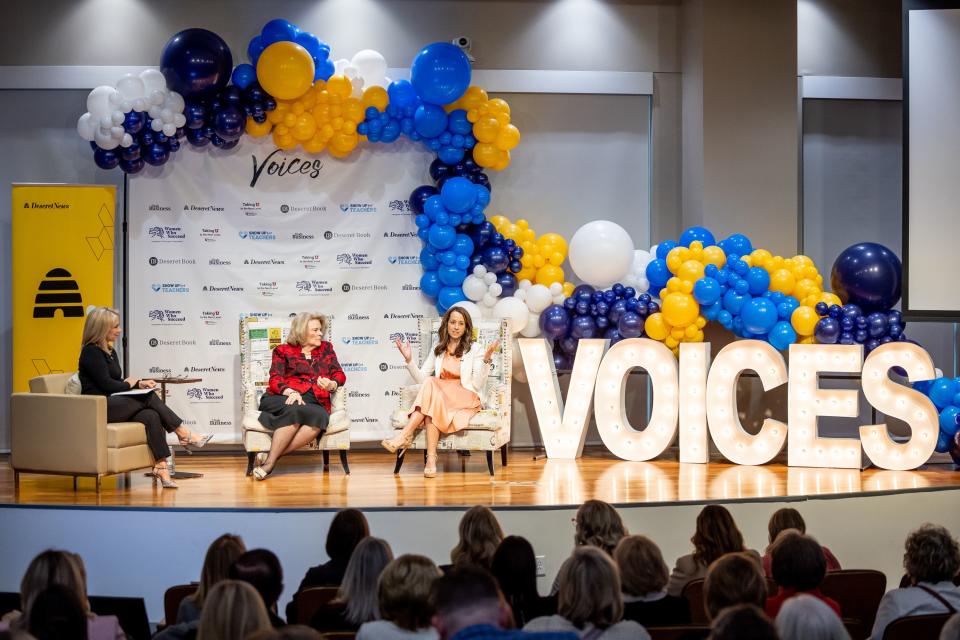
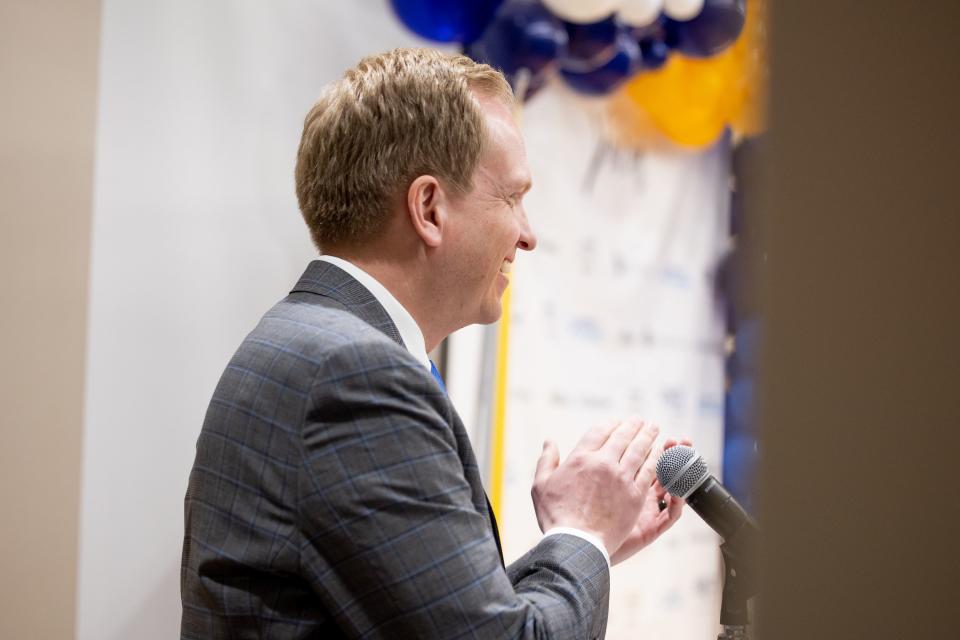
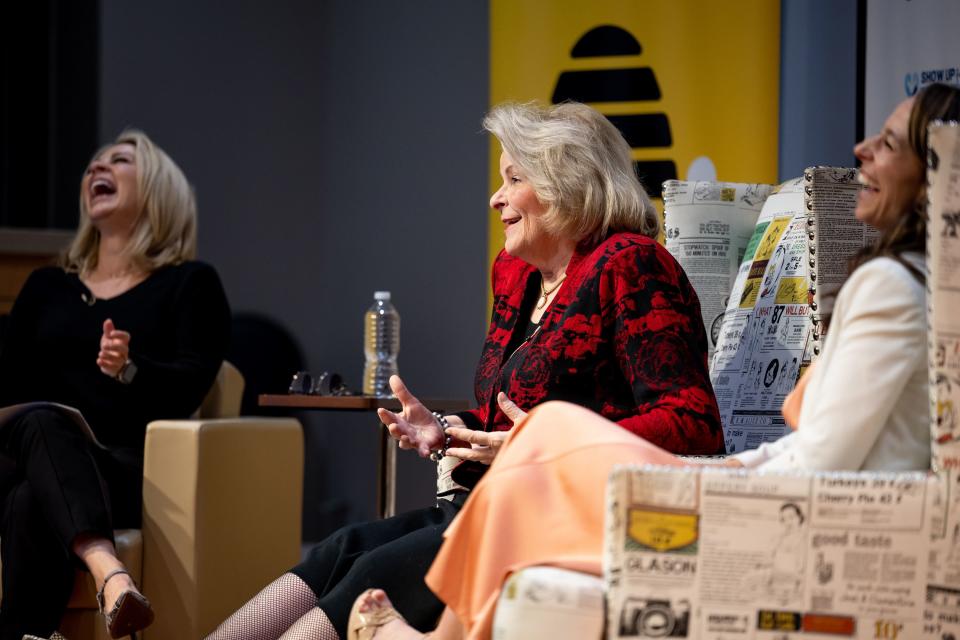
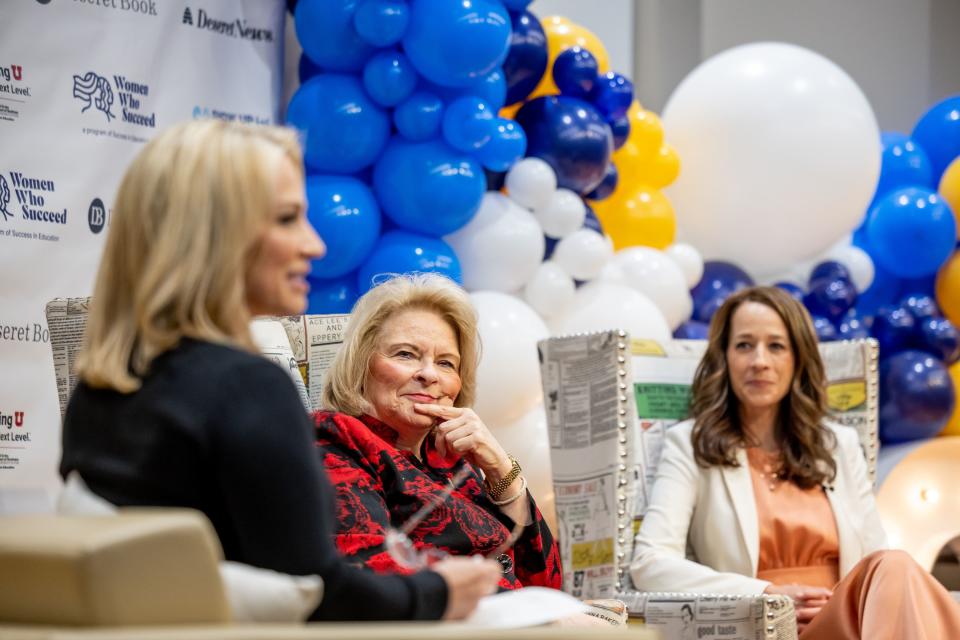
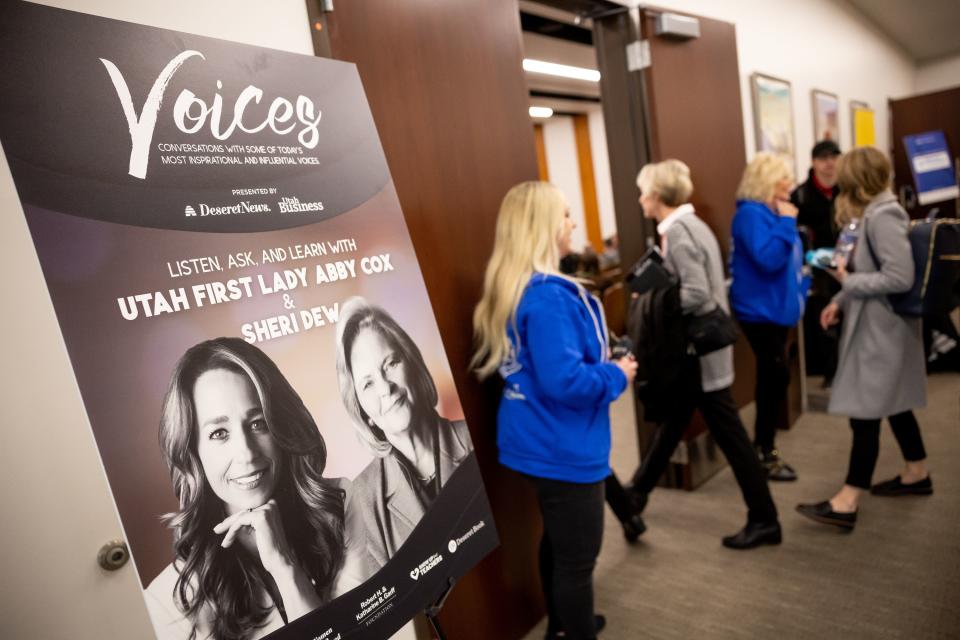
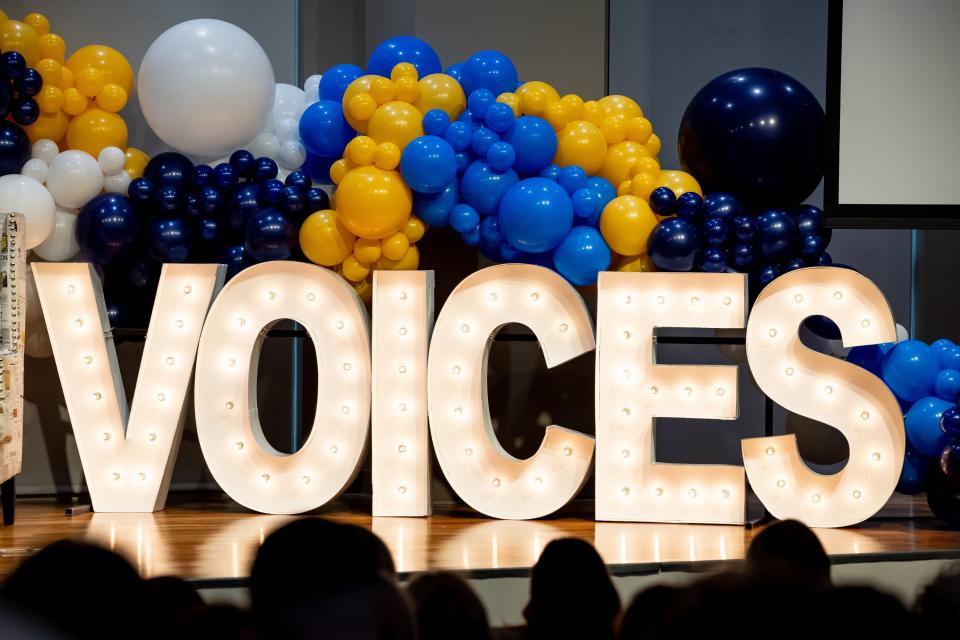
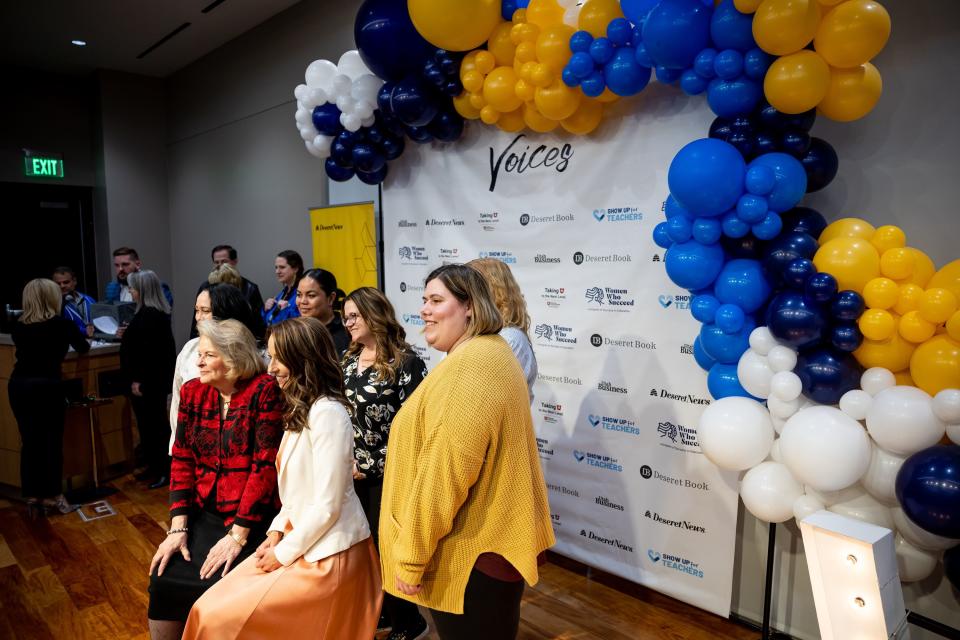
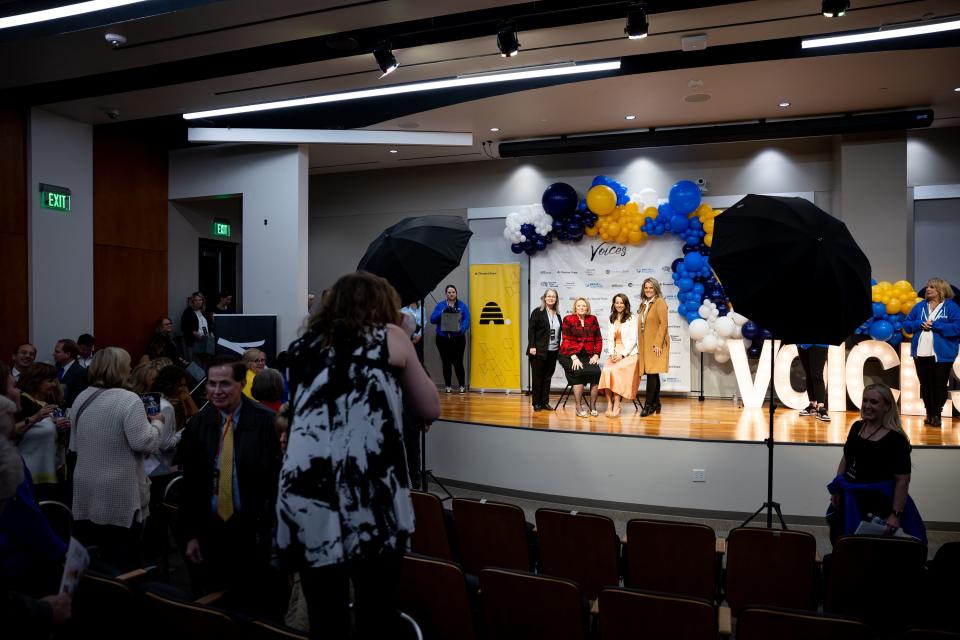
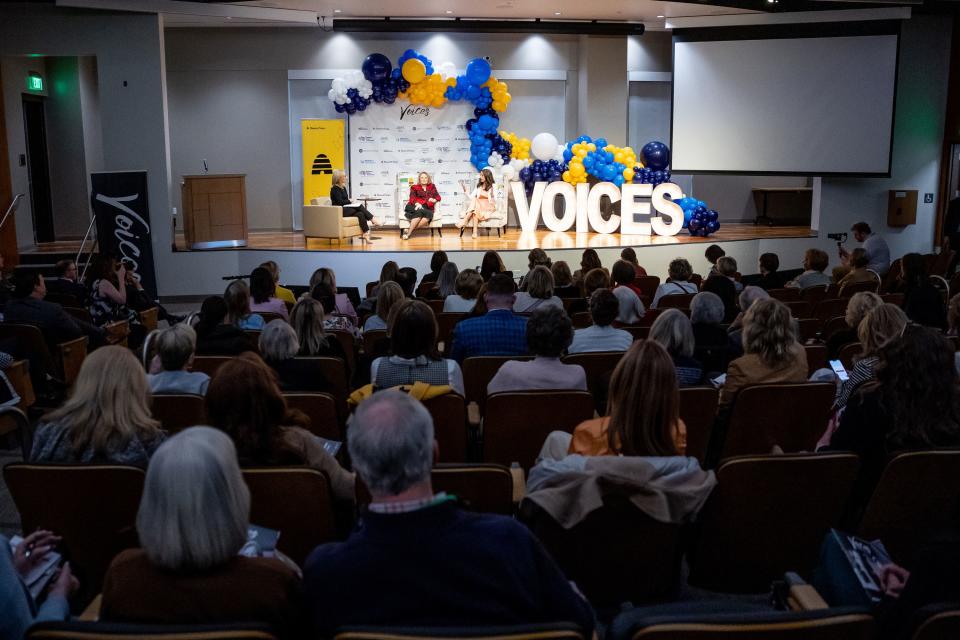
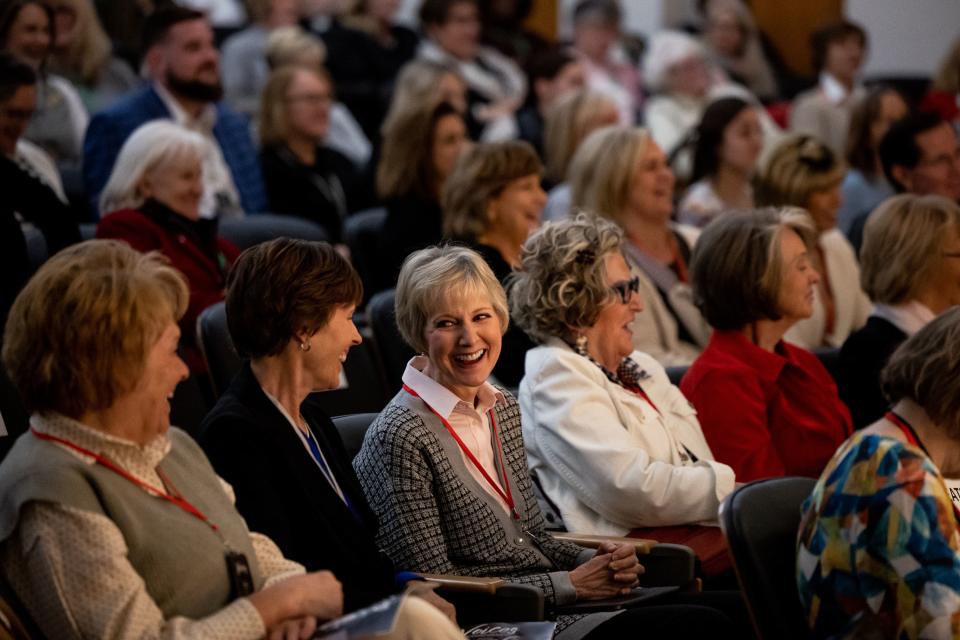
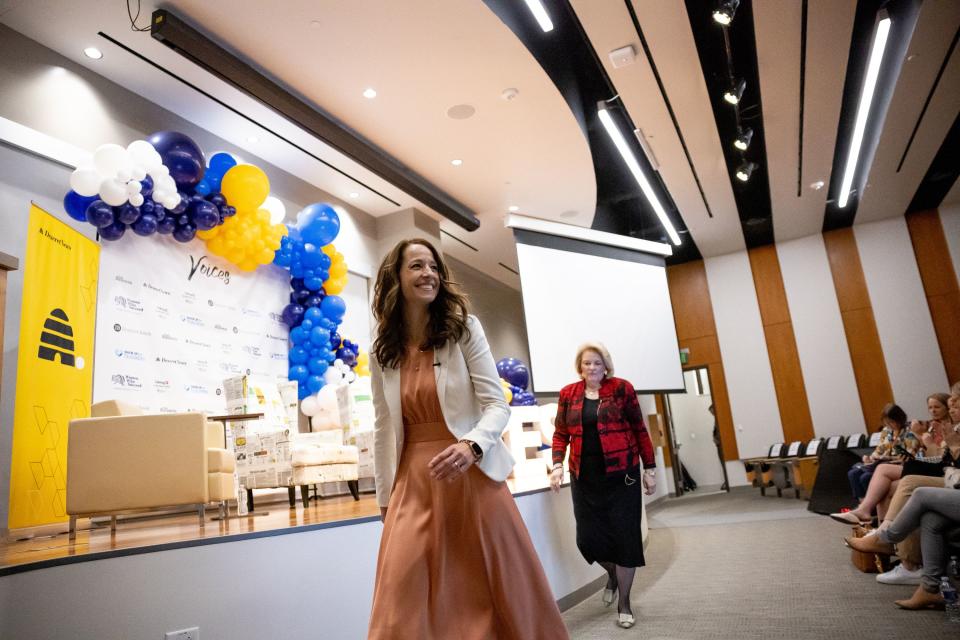
The women also discussed the challenge of this moment in time. “We’re living in a time when it’s hard to know what’s true,” Dew said. “I care a lot about the truth.”
Social media makes it harder and harder to know what’s true and artificial intelligence could make that harder still, said Dew, who recounted exploring ChatGPT with a colleague. They put in the question, “Who is Sheri Dew?” Within seconds, ChatGPT spit out her biography.
Sort of.
It got enough right to seem credible, like her birthday and birthplace and some biographical data.
She learned for the first time that she had been Time Magazine Woman of the Year in 2003. No one had told her, because that part wasn’t true. There were other mistakes, like saying she was the child of famous educators, rather than farmers.
She heralded the importance of communicating “fundamentally true principles, so that whether they’re religious or social or whatever they may be,” people can trust them and make decisions based on them. As she oversees Deseret News and other media companies, she said the goal is to be a source of truth and light.
The Cox family has lived with untruths spread through media, social and otherwise. Spencer Cox was running for governor of Utah during the heart of the pandemic, and his wife said some of the campaign was “unbelievably difficult.” Millions and millions of dollars were spent on negative campaign ads targeting his candidacy, she said, and as the world divided on issues around COVID-19, even some friends and neighbors said hurtful things. The couple, though, had promised themselves to never go negative in the campaign. As they watched his numbers drop in the polls, she said, one of the hardest parts was knowing their kids were seeing negative and untrue things being said about their dad. It hurt.
Dew noted that when someone becomes a little visible, “people let you know what they think,” either over-the-top positive or unkind, which “always hurts. You develop some skills about how to deal with it.”
Worthen joked that as a news anchor, anything bad she ever thought about herself, someone has taken the time to email and confirm.
During questions from the audience, Dew and Cox were asked about developing young people — especially girls — into leaders and how women can better support each other. Cox’s advice to women is to champion others and to collaborate, to see both men and women as allies.
And while women need champions, children need mentors, she said.
“Show up,” said Dew of helping youths. She remembers a lesson from a speaker she heard long ago, who said children need an adult besides their parent who believes in them, who knows them by name and shows a genuine interest. She tries to be intentional in helping the next generation, especially young women, see themselves and their potential.
Among the lighthearted moments — and there were many — the biggest laughs went to Dew’s not-yet-reached ambition to be the editor-in-chief of Sports Illustrated. “I think there’s still a chance,” she quipped. “I am available.”
